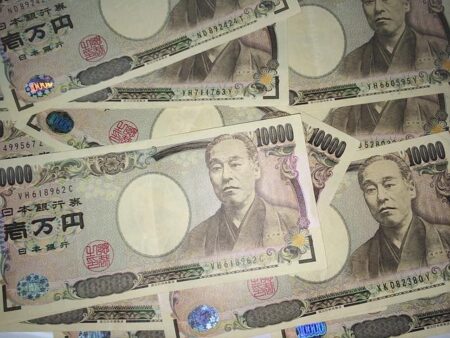Japan’s used car market is set to soar to an impressive USD 124.1 billion by 2034, driven by surging domestic demand and a surge in exports. Industry experts are hailing this as a groundbreaking milestone for the global automotive sector
Browsing: Japan economy
Japan’s bond market turmoil is sending shockwaves through global finance, igniting shifts in interest rates and rattling investor confidence worldwide. Understanding the full impact of this unfolding drama is essential, as it holds the potential to reshape economic policies and markets far beyond Asia
Japan’s Prime Minister has vowed to take rapid action against speculative market swings following a sharp surge in the yen. Officials are committed to curbing currency volatility and protecting economic stability, CNBC reports
U.S. and European tourists visiting Japan are now craving deeper, more immersive experiences that go beyond the usual sights. Experts highlight that offering a wider range of hands-on activities will be essential to tapping into the full potential of future international tourism revenue
Eurasia Group’s “Top Risks 2026” highlights the escalating geopolitical tensions, sweeping economic changes, and technological challenges that could define Japan’s path to stability and growth. At the forefront are urgent regional security threats and possible disruptions to critical supply chains that demand close attention
Japan has enthusiastically embraced its new prime minister, inspired by his hands-on leadership and daring commitments to rejuvenate the economy. His fresh vision ignites a wave of optimism, shattering years of political fatigue and economic challenges, and rekindling the public’s trust
On December 31, India proudly surged past Japan to secure its place as the world’s 4th-largest economy, marking an extraordinary milestone in its rapid growth journey, according to Meyka’s latest economic report
Japan’s FY2025 growth forecast has been upgraded to an impressive 1.1%, driven by a vibrant surge in consumer spending and a strong boost in investment, according to a report by Japan Wire via KYODO NEWS
The Japanese yen surged dramatically against G-10 currencies after Japan’s Finance Minister teased potential policy shifts. Traders sprang into action, propelling the yen upward amid a flurry of global currency activity
Japan’s recent rate hike has sparked a fierce generational divide: while older citizens cheer the effort to tame inflation, younger generations fret over soaring loan costs and mounting economic uncertainty, reports ěˇ°ě„ ěťĽëł´
BREAKING NEWS: Japan’s Finance Minister delivers a powerful warning-if the yen experiences volatile swings, the government is ready to intervene immediately. Authorities are poised to act swiftly to ensure currency stability, KYODO NEWS reports
The Bank of Japan is gearing up to raise interest rates to a 30-year high, signaling a bold new chapter in its monetary policy as it tackles soaring inflation. All eyes will be on Wednesday’s announcement, with markets buzzing in anticipation of the next big move
Global bonds plunged sharply following hawkish remarks from the Bank of Japan, signaling potential shifts in monetary policy. Investors reacted swiftly, driving yields higher as uncertainty surged
Japan’s two-year government bond yield has surged to its highest level since 2008, driven by growing market excitement over potential rate hikes. Investors are now closely watching the Bank of Japan, eagerly awaiting its next move in shaping monetary policy
The Bank of Japan is preparing to possibly raise interest rates at its December meeting, the Chief Governor revealed, signaling a major departure from the central bank’s decades-long ultra-loose monetary policy
Tensions are skyrocketing as a fierce diplomatic showdown between Tokyo and Beijing escalates, putting Japan’s fragile economic recovery at serious risk. Trade disruptions and mounting investor anxiety threaten to derail the hard-won progress, CNBC reports
Trump administration tariffs have slammed Japan’s export-driven economy, sparking a sharp and troubling downturn. The New York Times reports that rising trade tensions are wreaking havoc on supply chains and driving a dramatic drop in industrial production
Japan Finance Minister Katayama emphasized the crucial role of maintaining stable currency movements, highlighting how this stability fuels economic strength and inspires greater investor confidence, during a recent statement to InvestingLive
Japan’s Prime Minister Takaichi is set to reveal an ambitious new government fiscal target aimed at safeguarding the nation’s financial future. This bold strategy strives to perfectly balance robust economic growth with sustainable debt management, paving the way for lasting prosperity
Japan’s Ministry of Finance remains confident in steady growth across all regions, standing firm on its economic outlook despite ongoing global uncertainties, according to the latest report on nippon.com




















